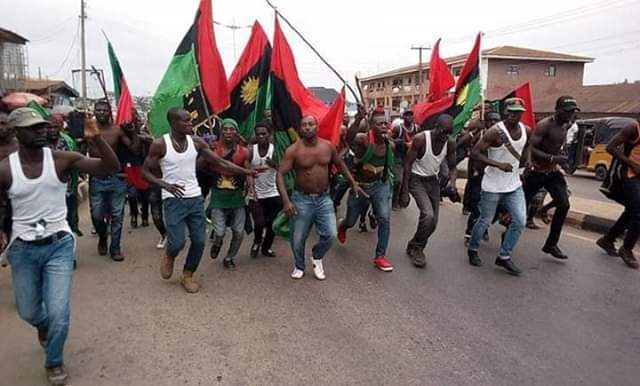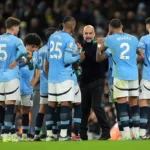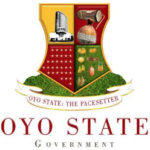As a recruit into the Nigerian army of fact-checking and verification, wrestling against contemporary information disorder, I would always take unsolicited video clips shared on WhatsApp with a pinch of salt. With modern digital technology which has boosted the capacity of mischief-makers to doctor videos and photographs to achieve certain effects or objectives, it has become foolishly dangerous to swallow hook-line-and-sinker a lot of online video contents. A video clip by the proscribed Indigenous People of Biafra (IPOB) that strayed into my WhatsApp last week played into my disposition towards suspicious online contents.
In the amateur IPOB video, narrated by a voice heaving and panting as it captured fleeting visuals, a man in suspected IPOB militia regalia entered into a supposed supermarket, grabbed a number of edible items and walked out breezily without making payment to the cashier. The person’s thievery was obscured by the narrator’s voice which claimed “Biafra national guards are already on ground. They’ve come to liberate prisoners of conscience.” Quickly, the video takes viewers to a petrol station, where an attendant dutifully filled the tanks of two Sport Utility Vehicles (SUVs). The drivers of the vehicles drove off from the pump without paying for the product, as the narrator sustained his liberation rhetoric, with “we’re ready for war; the Biafra National Guard has come to liberate Biafra.” Then, one of the supposed members of the national guard spoke ‘in an interview’ with false confidence, thus: “we’re back just from Israel; our men are on ground; ready for war!” At criminal speed, the SUVs sped off.
The words and phrases used by the narrator in the video clip give the gullible in the South East a false sense of security, because the reality on ground belies the impression of the ‘army’ the clip depicted. How many battalions is this army? Are they enough to protect all the five South-East states? How can three or four persons in two SUVs constitute ‘Biafra national guard,’ to defend the South East? Secondly, saying the so-called ‘national guard’ was on a mission to liberate ‘Biafra,’ contradicted the reality of the siege on the South East, where IPOB flexes its muscle and stifles personal and economic freedom. How does one qualify the liberty that prevents businessmen from engaging in their trading activities; blocks students from going to school; and demobilises motorists from plying the highway?
But the false claims in the clip are not new. Over the years, IPOB had fired up the belief in the utopian Biafra Republic among many credulous persons through its rhetoric on Radio Biafra and hate-filled press statements. The clandestine station broadcast fear-inducing hyperbolic statements like, “Nigeria should prepare for war’; ‘we are coming to annihilate you,’ or ‘any army [Nigeria] sends to Biafra land will die,’ or ‘Niger Delta people are cowards,’ or ‘My [Kanu’s] secret service are already studying the zoo [Nigeria] and strategising…’ This deceptive rhetoric has prevailed because the South East governments and elites have failed to counter the false hope spread by IPOB; youths have now bought into the Biafra project at an unnecessarily exorbitant price. Many youths have been killed in the similitude of martyrdom.
The use of language to manipulate the mind of their target community is a well-known strategy employed by separatist and terrorist organisations, because they have realised that language has the capacity to change the shape and colour of any phenomenon. For instance, Boko Haram would constantly refer a terror attack on innocent persons and communities as ‘the work of God,’ giving such a bloody, inhuman act a spiritual colour. Suicide bombers are white-washed, using the language of kinship, ‘our brothers,’ while hanging the tag ‘infidel’ on the neck of those who reject Boko Haram’s doctrines of death. Boko Haram would impress it on new recruits into its fold that because an ‘infidel’ is a worthless person, it is justifiable to waste his life without feeling any sense of guilt. Just as the South East elites failed to counter IPOB’s false narrative which has foist confusion on the region, many northern elite did not challenge Boko Haram’s rhetoric with the kind of enlightened argument that would weaken their influence. In the wave of complacency and playing the ostrich, Boko Haram’s doctrine took hold in the North East, turning the region into a killing field for over a decade now.
Not learning from the missteps in tackling Boko Haram’s rhetoric, Nigeria is still caught in self-delusion as to an appropriate name for the ongoing mayhem in the North West. Are they bandits or terrorists? Terrorists engage in illegal use of weapons, indiscriminate killings, and spreading of fear among the people. Are these different from what bandits have been doing to us? By not using the word ‘terrorists’ to brand the non-state violent actors in the North West, we limit the amount of force the military should use in tackling them, though they are merciless on innocent citizens. But the most grievous misuse of language on the trouble-makers was done by Zamfara State Governor Bello Matawalle, who claimed ‘not all bandits are criminals.’ This is a classic example of semantic confusion, because the sense of banditry implicates criminality. No one can be termed a bandit if the person does not manifest criminal tendencies, like armed robbery, plundering of other persons’ resources, hijacking of vehicles, rape, molestation, etc. When the governor used that expression, his intention was to impress it on the military to reduce its firepower in dealing with those criminal elements in his state.
But the worst of all contradictions came from Dr Ahmad Gumi whose counter-argument on military action against the terrorists goes thus: ‘They were victims of violence, so they took arms to protect themselves…’ Portraying these persons who have spread misery all over the country as ‘victims’ sends out a signal that these killers should be indulged, though they rejected dialogue, unqualified amnesty and other overtures made to persuade them to halt their unbridled bloodshed. Some governors have used the emotive phrase ‘our brothers’ in reference to the bandits so the military should not be too hard on them.
The elite must awake from their bed of ethnic chauvinism to counter the false, deceptive and hyperbolic rhetoric that have turned Nigeria into an ungovernable space, from North to South. There must be a deliberate effort through various media to counter falsehood peddled by separatists, terrorists, and so-called insurgents, to ensure they do not continue to hoodwink susceptible Nigerians into their fold. We condoned Niger Delta militia groups when we tagged them as ‘environmental activists,’ thereby excusing all the criminal activities that non-activists visited on the country’s oil infrastructure, and kidnapping for ransom that chased away veritable foreign investors. We are afraid of giving the appropriate tag to the violent activities by elements in the North West so as not to give them away to the military for appropriate action. By shirking away from the harsh truth about the destructive activities of criminals in Nigeria, our elite have become complicit in the spate of insecurity in Nigeria. There must be elite consensus on what constitutes terrorist acts, and how they should be dealt with.
The elite cannot be dispassionate in dealing with criminal manifestations unless there is a consensus as to what constitutes peace or insecurity in the country. At the moment, Nigeria does not have a National Peace Policy, as the document which should have provided the framework for peace is still in its draft form, since 2009. The document spells out the strategies for enhancing peace in Nigeria and the roles that various segments and sectors of the society should play. Funded by the United Nations Development Programme (UNDP) and produced by the Institute for Peace and Conflict Resolution (IPCR), the document is gathering dust in some government offices in Abuja. A National Peace Policy could specify the agency of government to track and counter deceptive rhetoric by terrorists. It is not enough to shoot terrorists; we must silence their satanic rhetoric.

 Join Daily Trust WhatsApp Community For Quick Access To News and Happenings Around You.
Join Daily Trust WhatsApp Community For Quick Access To News and Happenings Around You.


